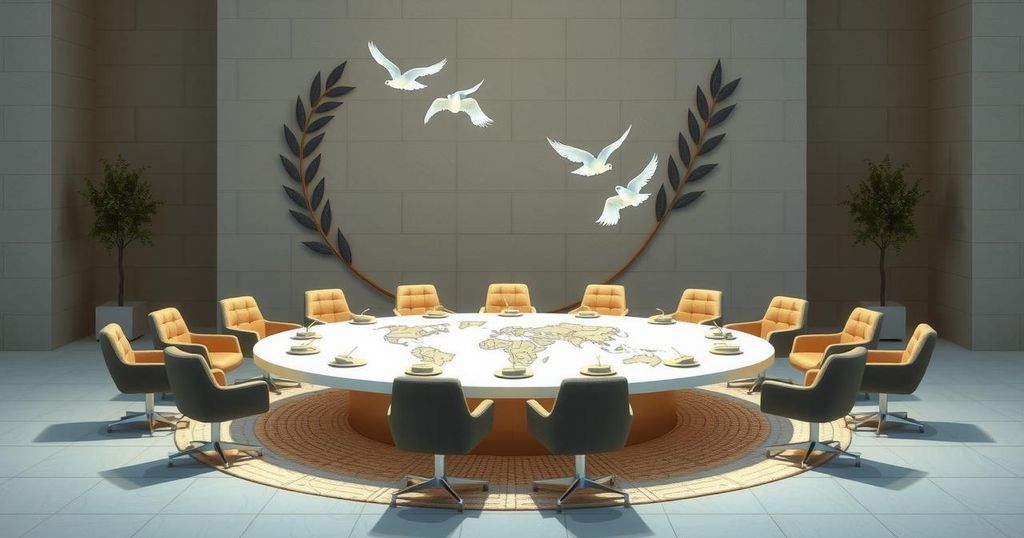The Saudi Arabia summit will focus on the reconstruction of Gaza after the recent conflict, addressing crucial aspects such as governance and funding. While an Egyptian plan advocates for Palestinians to remain in Gaza during reconstruction, significant financing needs are unmet due to regional financial strains. Israeli military responses further complicate these efforts, raising doubts about the sustainability of peace initiatives without effective security measures.
The upcoming summit in Saudi Arabia aims to address the reconstruction of Gaza following the recent conflict. U.S. President Donald Trump proposed the idea of displacing Palestinians as a means to rethink solutions for their welfare. Following a meeting with Jordan’s King Abdullah, there are indications that Trump may be moving toward supporting an Egyptian plan for post-war Gaza, which advocates for Palestinians to remain in their homes while reconstruction takes place.
This summit, hosted by Saudi Crown Prince Mohammed bin Salman, will include leaders from Egypt, Jordan, Qatar, and the UAE. The discussions will focus on Egypt’s proposal for temporary housing for Palestinians and the clearing of debris. A critical issue remains: financing the reconstruction efforts, as an estimated $50 billion is required, with at least $20 billion needed in the first three years.
The financing dilemma arises from the lack of support from cash-strapped Egypt and Jordan, alongside the U.S. reluctance to press Israel for compensation due to the destruction caused by its military operations. Consequently, Saudi Arabia, the UAE, and Qatar may need to assume the financial burden despite their previous hesitance to fund neighboring states without assurances against further destruction.
Amidst these discussions, Israeli Prime Minister Benjamin Netanyahu has expressed a need for revenge against Hamas following the recent release of captives, underscoring the volatile security situation in Gaza. Israel’s continued military presence might impede reconstruction efforts. Even though rebuilding efforts are anticipated, they hinge on the political resolution regarding the governance of Gaza and whether Hamas will relinquish its control.
The article further discusses the dynamics of potential leadership in Gaza post-conflict, including the possibility of appointing Palestinian figures outside of Hamas or the Palestinian Authority (PA). Stakeholders like the UAE are open to deploying peacekeepers, but conflicting interests among Gulf states pose challenges for cooperative governance solutions. As Reconstruction efforts commence, there is significant skepticism regarding the sustainability of peace without lasting security arrangements.
The Saudi summit on Gaza reconstruction will explore crucial questions surrounding post-war governance and funding. With significant financial contributions needed and a volatile political landscape, the cooperation among Arab nations and the U.S. is indispensable. The ongoing military threats from Israel and potential resistance from Hamas complicate the prospects for lasting peace and reconstruction in Gaza. Consequently, effective dialogue and strategic planning are essential to achieve stability in the region.
Original Source: www.middleeasteye.net




